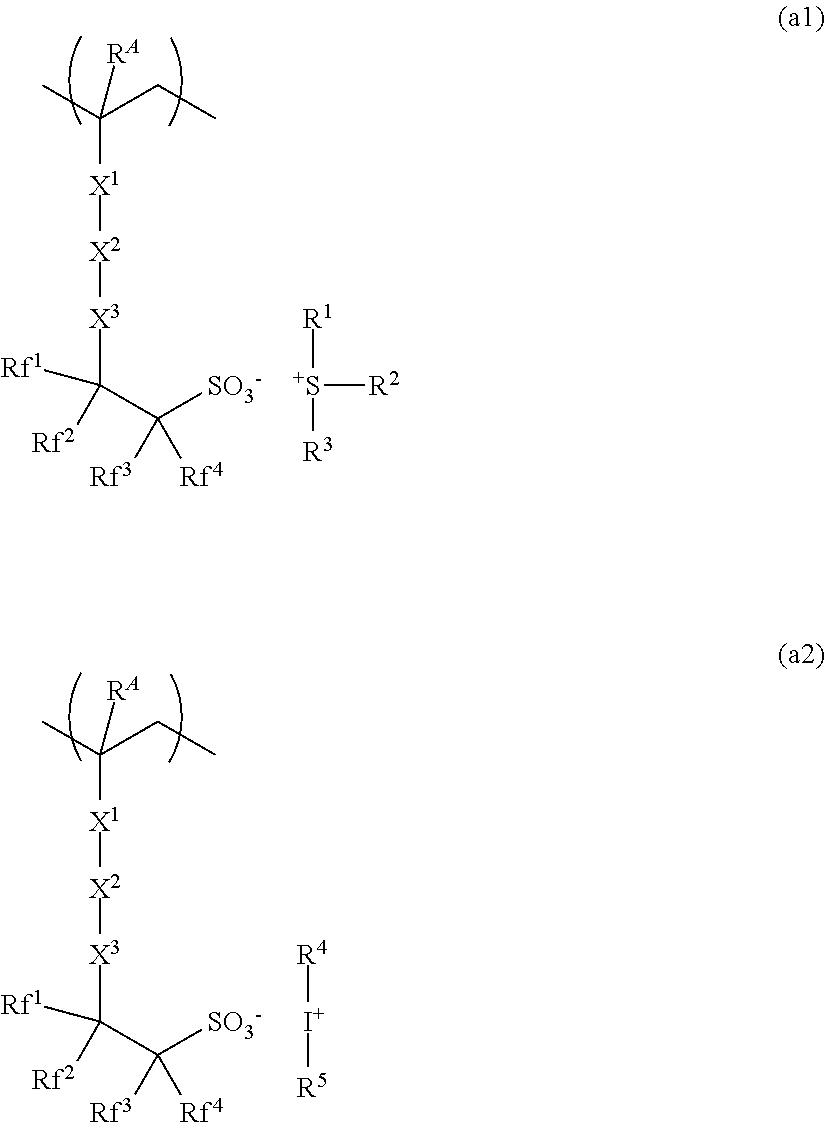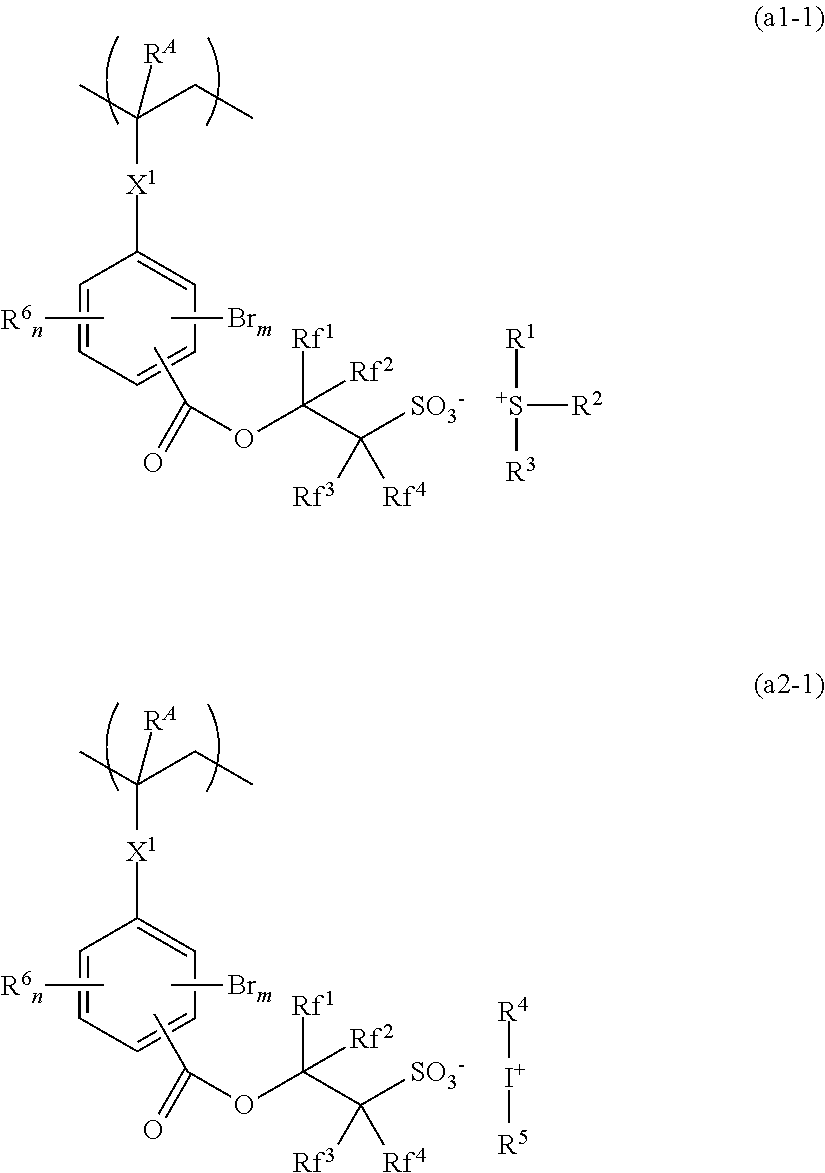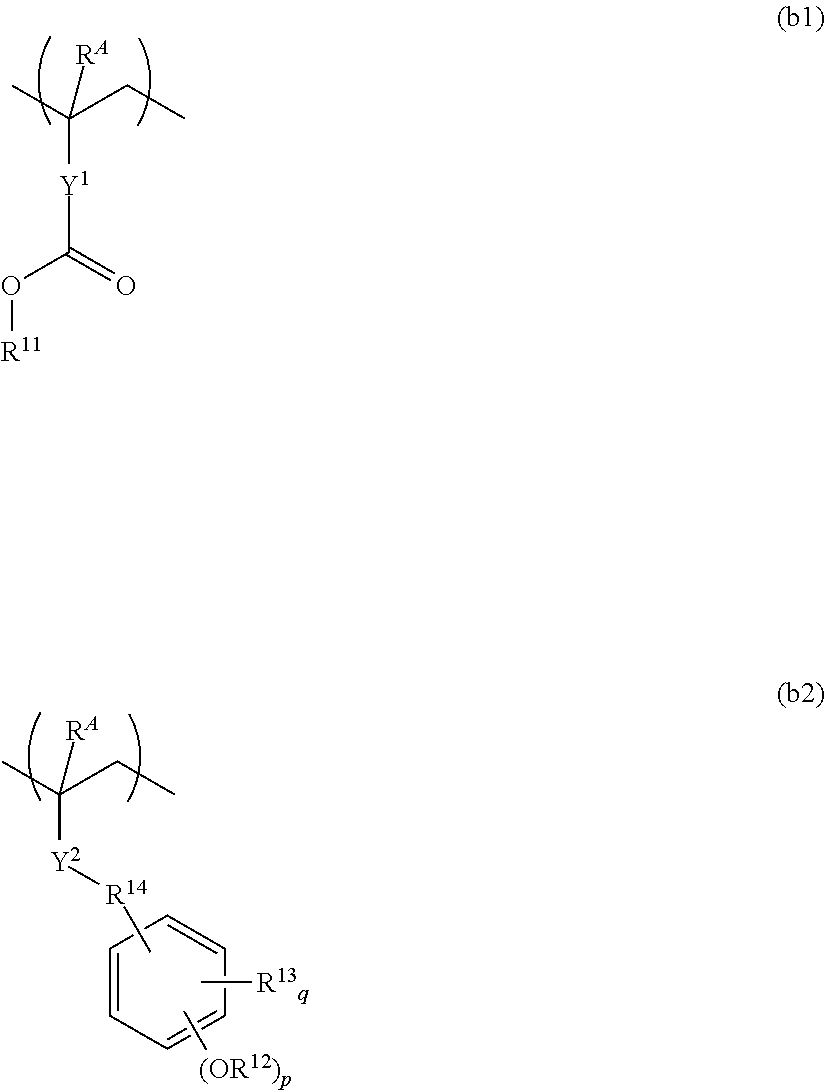Resist composition and patterning process
a composition and composition technology, applied in the field of resist composition and pattern forming process, can solve the problems of reducing the resolution and focus margin of hole and trench pattern, lwr degradation, cdu degradation, etc., and achieves the effects of reducing acid diffusion, reducing lwr and cdu, and large atomic weigh
- Summary
- Abstract
- Description
- Claims
- Application Information
AI Technical Summary
Benefits of technology
Problems solved by technology
Method used
Image
Examples
synthesis example 1
[0160]Synthesis of Polymer 1
[0161]A 2-L flask was charged with 8.4 g of 1-methylcyclopentyl methacrylate, 3.6 g of 4-hydroxyphenyl methacrylate, 4.5 g of 3-oxo-2,7-dioxatricyclo[4.2.1.04,8]nonan-9-yl methacrylate, 8.1 g of PAG Monomer 1, and 40 g of THF as solvent. The reactor was cooled at −70° C. in nitrogen atmosphere, after which vacuum pumping and nitrogen blow were repeated three times. The reactor was warmed up to room temperature, whereupon 1.2 g of AIBN as polymerization initiator was added. The reactor was heated at 60° C., whereupon reaction ran for 15 hours. The reaction solution was poured into 1 L of isopropyl alcohol for precipitation. The resulting white solid was collected by filtration and vacuum dried at 60° C., yielding Polymer 1 as white solid. The polymer was analyzed for composition by 13C- and 1H-NMR and for Mw and Mw / Mn by GPC, with the results shown below.
[0162]
synthesis example 2
[0163]Synthesis of Polymer 2
[0164]Polymer 2 was synthesized as white solid by the same procedure as in Synthesis Example 1 aside from using 10.3 g of PAG Monomer 2 instead of PAG Monomer 1. The polymer was analyzed for composition by 13C- and 1H-NMR and for Mw and Mw / Mn by GPC.
[0165]
synthesis example 3
[0166]Synthesis of Polymer 3
[0167]Polymer 3 was synthesized as white solid by the same procedure as in Synthesis Example 1 aside from using 10.3 g of PAG Monomer 3 instead of PAG Monomer 1. The polymer was analyzed for composition by 13C- and 1H-NMR and for Mw and Mw / Mn by GPC.
[0168]
PUM
| Property | Measurement | Unit |
|---|---|---|
| wavelength | aaaaa | aaaaa |
| wavelength | aaaaa | aaaaa |
| of wavelength | aaaaa | aaaaa |
Abstract
Description
Claims
Application Information
 Login to View More
Login to View More - R&D
- Intellectual Property
- Life Sciences
- Materials
- Tech Scout
- Unparalleled Data Quality
- Higher Quality Content
- 60% Fewer Hallucinations
Browse by: Latest US Patents, China's latest patents, Technical Efficacy Thesaurus, Application Domain, Technology Topic, Popular Technical Reports.
© 2025 PatSnap. All rights reserved.Legal|Privacy policy|Modern Slavery Act Transparency Statement|Sitemap|About US| Contact US: help@patsnap.com



